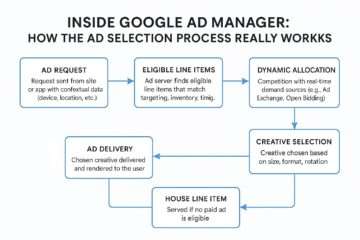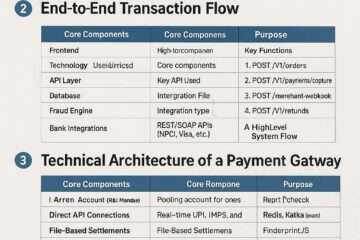

Sick of the disruptions and changes in marketing this year?
Unfortunately, Google Search is now undergoing extensive changes that have already changed how visitors are directed throughout the internet. For the past 20 years, Google Search has been the main source of traffic and money on the web.
Google finished implementing its first “core update” of 2024, which addresses spam and poor-quality content in search results, last month.
Every year, there are usually two or three major updates, and on a rolling basis, publishers or advertisers bring up specific issues that are fixed.
But more significant change is on the way.
Google is going to start enforcing a new spam policy this week. This isn’t a major update, but it does promise more confusion and traffic declines for many sites.
The history
Due to nondisclosure agreements with Google on certain search beta products, one SEO expert who claimed that Google’s most recent spam core update was exceptionally complex and challenging.
They described it as a complex modification that involved several key algorithms that rank and counter-rank one another. It developed from a more targeted upgrade, the “helpful content update,” in September.
Whether or not a search user will find the information on a certain page worthwhile is the main emphasis of the helpful content update. For instance, the new core update may flag a publisher for spamming activities elsewhere on its website, offsetting a high helpful content score on a particular URL.
The SEO consultant stated that when the search engine identifies information that it deems spam or unhelpful, one significant systematic shift made by Google Search is to downrank websites at the publisher level as opposed to the URL level. This results in publishers experiencing more extensive downrankings for their primary site rather than a decrease in traffic to that specific URL or area of the website.
Imagine a digital media platform free of undesirable behaviors but also features a section dedicated to a directory of coupons or pay-to-post choices similar to sponsored content. Some of the content may violate spam policies and reduce traffic to the entire website because its primary purpose is to assist the publisher monetise rather than to benefit online consumers.
Think about Forbes, which was recently exposed for using dubious monetization techniques under a subdomain (www3.Forbes.com).
Previously, publishers could simply discontinue their unethical advertising tactics on the affected section of their website without harming the website as a whole. That can now have an impact on the website’s overall search engine rankings.
What is the problem?
These content upgrades and spam have impacted a lot of publishers. Is that, though, a terrible thing?
Regarding MFA sites, publisher consultants are similar to ad tech businesses in that regard, according to one consultant who spoke about a client with a nondisclosure agreement but asked to remain anonymous.
In answer to what agencies and ad tech companies claimed they desired—cheap, visible, human impressions—MFA sites were developed. Google has been telling publishers for years that what the algorithm wants is aggregated material with lots of search information and coupon directories, both through its own best practices and by sending users to specific kinds of websites. Suddenly, those content techniques are seen as spam, and there is a 70%–90% decrease in site traffic.
Publishers and SSPs often lament being wrongly classified as MFA, but there’s a good reason for this. According to the publisher consultant, this is because they adopt strategies like placing six or more advertisements above the fold when a website loads.
However, they pointed out that the most recent Google core update goes much beyond only fixing MFA content.
There is pay-to-publish content on a lot of websites, which isn’t always bad. For example, a lot of respectable publishers feature native advertising or sponsored content that appears to be original but is actually paid for and frequently published by a third party.
Waving its lengthy tail
Smaller and niche websites also assert that Google’s beneficial content upgrade has hurt them by making them less competitive with major publishers.
Since Google’s March/April core upgrade, HouseFresh, a website that reviews products and focuses on air purifiers and related home equipment, reports a 90% decrease in search traffic. Instead, according to HouseFresh, the majority of that traffic is going to big publishers like Dotdash Meredith, despite the fact that these larger websites frequently compile reviews from niche publications and produce content on a large scale purely for the purpose of monetizing affiliate traffic, which runs counter to the main update.
Furthermore, it goes beyond publishing houses. European encrypted email provider Tuta Mail reported a 90% decrease in website traffic following the March core update.
Matthias Pfau, CEO of Tuta Mail, told Reuters, “Clearly, Google changed something in its search algorithms, but we do not know what they changed or why.”
What comes next?
Thus, changes to the Google Search algorithm have an impact on you. Take a seat at the club.
What can be done is the key question. Sadly, not at all.
Pfau claimed that Google has given Tuta Mail “radio silence.” Additionally, the SEO expert mentioned that one of the main sources of annoyance for publishers is that Google doesn’t actually provide real-time problem solving or explanations.
According to the consultant, Google is actually not viewing this as a problem that needs to be resolved on the backend. Customers that are publishers are advised by Google to focus on their own websites and anticipate organic improvements between now and the upcoming core update later in the summer.
According to the publisher consultant, the thing that bothers small and midsize websites the most about the latest Google Search improvements is that they don’t seem to be focused on spam control and useful content promotion.
They questioned, “Who’s winning here?” That ought to be a blatant sign, right?
They argue that if any businesses are currently “winning” Google Search, it’s major networks like Reddit and Google. The primary driver of revenue increase was search when Google released its Q1 earnings in April. The money that YouTube makes is expected to surpass $100 billion year, as well.
However, Google’s network business—which generates ad income for publishers and other websites—was offline. Not only are they growing more slowly, mind you, but they are actually declining annually.
But since late September, when the helpful content upgrade started to favor “forums” and “authentic reviews,” Reddit has soared up Google Search results pages.
These are fantastic updates for Reddit, a forum-based website where a large number of active users publish evaluations of products. However, Reddit also just agreed to pay hundreds of millions of dollars to Google Cloud as a customer, in addition to an extremely expensive arrangement to license Reddit’s data to the latter for the development of its AI software.
In February, Pinterest started to outrank smaller culinary and recipe websites in Google Search results for recipes and other queries. That happened not long after Pinterest and Google Ads inked a significant traffic deal.
According to the SEO specialist, in the past, websites would benefit from adhering to Google’s stated criteria in order to rank well in search results. Publishers are currently so frustrated that following Google’s recommendations and best practices isn’t working that well. The issues are only growing more severe.
The expert stated that although Google is advising publishers to completely change their methods, it seems that “signing a major data sharing and Google Cloud spending contract is the real way to win more search revenue.”



























































